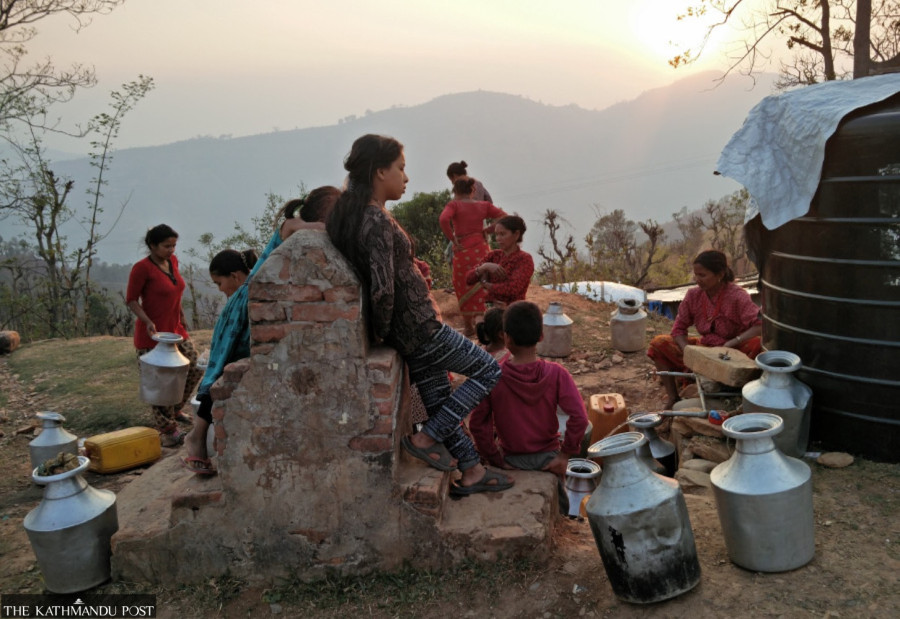Editorial
A drying country
It is vital to build national awareness on the magnitude of anthropogenic activities on global climate.
This has been an unusually dry winter with low precipitation, which, say informed people, offers visible proof of climate change. Beyond the scientific fact of climate change, though, there are human stories of hardships and scarcity. People across Nepal, primarily in rural areas, complained of having to travel farther than usual to get water as taps ran dry. As the Post reported on Wednesday, residents of Ritthe village in Ramechhap’s Doramba Sailung Rural Municipality had to walk for hours to fetch drinking water. Earlier, a dry monsoon had prompted Banke district officials to declare Narainapur Rural Municipality a drought-hit zone as precipitation dramatically declined and paddy fields developed cracks. Extreme weather conditions in Narainapur forced people to migrate to nearby India and elsewhere in search of work.
The bad news is that extreme weather conditions are going to be the new normal rather than an anomaly. Prolonged dry spells may well be followed by incessant rainfall, causing more damages to agriculture and infrastructure, in turn leading to a multi-faceted crisis including in areas of health, food and livelihood. The Intergovernmental Panel on Climate Change 2022 report laid bare the truth that the climate is changing more quickly than suggested by most previous studies, and the planet has already reached a point of no return. The report also said climate change impacts have led to deteriorating physical health of people globally and poor mental health in several regions. What’s more, it is expected to become a driving force for violent conflicts in several parts of the world as food and land scarcity become acute.
In Nepal, the government this year is yet to fully assess crop yield losses, tree mortality and scarcity faced by humans and animals even as people have mostly been left to their own devices to deal with the crisis. A big part of the problem is the government's inability to set up a sturdy resilience mechanism. As the state remains mostly clueless, people are left to deal with the crisis themselves. In the short term, the communities should be empowered through local level units by teaching them low-cost solutions such as the use of cheap, plastic-lined rainwater harvesting ponds during dry spells. In the long run, the government should help strengthen resilience by building solid irrigation and drinking water infrastructures that help people stay put in their traditional habitats. While doing so, it should also consider the vulnerability of socially marginalised communities such as poor people, Dalits, religious minorities and women who bear the brunt of inequities brought about by the climate crisis.
Most of all, it is important to build national awareness on the magnitude of our impact on global climate through anthropogenic activities, and then act to reduce our footprint on the planet. As Dipesh Chakrabarty writes in a recent book The Climate of History in a Planetary Age, we should “pursue our all-too-human but legitimate quest for justice on issues to do with the iniquitous impact of anthropogenic climate change” from the perspective that we humans, rich or poor, are just passing guests rather than permanent owners of the planet. The fact that Nepal ranks as one of the most vulnerable countries to climate change makes the practice of sustainability in letter and spirit imperative so that those contributing the most to climate change face a moral pressure to emulate as well as compensate us.




 20.12°C Kathmandu
20.12°C Kathmandu













